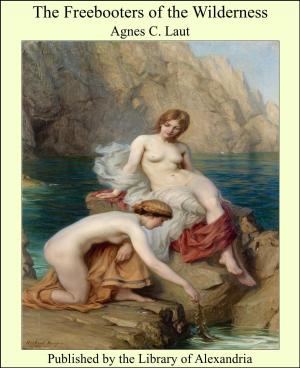The English Stage: Being an Account of the Victorian Drama
Nonfiction, Religion & Spirituality, New Age, History, Fiction & Literature| Author: | Augustin Filon | ISBN: | 9781465532817 |
| Publisher: | Library of Alexandria | Publication: | March 8, 2015 |
| Imprint: | Language: | English |
| Author: | Augustin Filon |
| ISBN: | 9781465532817 |
| Publisher: | Library of Alexandria |
| Publication: | March 8, 2015 |
| Imprint: | |
| Language: | English |
INTRODUCTION By Henry Arthur Jones I have rarely had a more welcome task than that of saying a few words of introduction to the following essays, and of heartily commending them to the English reading public. I am not called upon, nor would it become me, to recriticise the criticism of the English drama they contain, to reargue any of the issues raised, or to vent my own opinions of the persons and plays hereafter dealt with. My business is to thank M. Filon for bringing us before the notice of the French public, to speak of his work as a whole rather than to discuss it in detail, and to define his position in relation to the recent dramatic movement in our country. But before addressing myself to these main ends, I may perhaps be allowed to call attention to one or two striking passages and individual judgments. The picture in the first chapter of the old actor’s life on circuit is capitally done. I do not know where to look for so animated and succinct a rendering of that phase of past theatrical life. And the pilgrimage to the deserted Prince of Wales’s Theatre also left a vivid impression on me, perhaps quickened by my own early memories. In all that relates to the early Victorian drama M. Filon seems to me a sure and penetrating guide. All lovers of the English drama, as distinguished from that totally different and in many ways antagonistic institution, the English theatre, must be pleased to see M. Filon stripping the spangles from Bulwer Lytton. To this day Lytton remains an idol of English playgoers and actors, a lasting proof of their inability to distinguish what is dramatic truth. The Lady of Lyons and Richelieu still rank in many theatrical circles with Hamlet as masterpieces of the “legitimate,” and Money is still bracketed with The School for Scandal. It is benevolent of M. Filon to write dramatic criticism about a nation where such notions have prevailed for half a century. The criticism on Tennyson as a playwright seems to me equally admirable with the criticism on Bulwer Lytton, and all the more admirable when the two are read in conjunction.
INTRODUCTION By Henry Arthur Jones I have rarely had a more welcome task than that of saying a few words of introduction to the following essays, and of heartily commending them to the English reading public. I am not called upon, nor would it become me, to recriticise the criticism of the English drama they contain, to reargue any of the issues raised, or to vent my own opinions of the persons and plays hereafter dealt with. My business is to thank M. Filon for bringing us before the notice of the French public, to speak of his work as a whole rather than to discuss it in detail, and to define his position in relation to the recent dramatic movement in our country. But before addressing myself to these main ends, I may perhaps be allowed to call attention to one or two striking passages and individual judgments. The picture in the first chapter of the old actor’s life on circuit is capitally done. I do not know where to look for so animated and succinct a rendering of that phase of past theatrical life. And the pilgrimage to the deserted Prince of Wales’s Theatre also left a vivid impression on me, perhaps quickened by my own early memories. In all that relates to the early Victorian drama M. Filon seems to me a sure and penetrating guide. All lovers of the English drama, as distinguished from that totally different and in many ways antagonistic institution, the English theatre, must be pleased to see M. Filon stripping the spangles from Bulwer Lytton. To this day Lytton remains an idol of English playgoers and actors, a lasting proof of their inability to distinguish what is dramatic truth. The Lady of Lyons and Richelieu still rank in many theatrical circles with Hamlet as masterpieces of the “legitimate,” and Money is still bracketed with The School for Scandal. It is benevolent of M. Filon to write dramatic criticism about a nation where such notions have prevailed for half a century. The criticism on Tennyson as a playwright seems to me equally admirable with the criticism on Bulwer Lytton, and all the more admirable when the two are read in conjunction.















